Dystopian Books: 7 Common Myths Debunked
Dystopian literature captivates readers with its imaginative worlds and thought-provoking themes. John Mandel, which explores life after a pandemic, offer glimpses of hope and community amidst despair.
Myth 6: Dystopian Books Are Purely Fictional
Fact: Dystopian literature often reflects real-world issues and concerns. top dystopian novels
Many authors draw inspiration from historical events, political climates, and social issues. These narratives invite readers to consider the implications of their choices and the value of individual freedom, pushing beyond mere survival to engage with profound existential inquiries.
Myth 7: Dystopian Literature Is Pessimistic
Fact: Dystopian stories often convey messages of hope and the potential for change.
Despite their bleak settings, many dystopian novels end on a note of hope or possibility. This relevance encourages readers to critically engage with the world around them.
Myth 4: Dystopian Stories Are Always Dark and Depressing
Fact: Dystopian literature can also explore themes of hope and resilience.
While many dystopian narratives delve into dark themes, they often include elements of hope and resistance.
Furthermore, in this article, we will explore seven common myths about dystopian books, providing facts and explanations to debunk them.
-
Myth 1: Dystopian Books Are Just About the Future
Fact: Dystopian stories can be set in both the future and alternative realities.
While many dystopian novels envision bleak futures, others depict fictional societies that exist parallel to our own. Titles like “The Road” by Cormac McCarthy blend dystopian themes with literary storytelling, appealing to a broader audience.
-
Myth 7: Dystopian Books Are only Fiction
Fact: Dystopian literature can be a reflection of real-world scenarios.
Many classic dystopian novels are inspired by real historical events or societal trends, providing a cautionary tale about the potential consequences of unchecked power and societal complacency. For example, “Fahrenheit 451” by Ray Bradbury critiques censorship and the dangers of a passive society, while simultaneously addressing the importance of literature.
-
Myth 5: Dystopian Books Are All Gloomy and Depressing
Fact: Many dystopian stories incorporate elements of hope and resilience. dystopian literature books
While the settings can be dark, authors often highlight the strength of the human spirit in the face of adversity. Whether you are a seasoned reader or new to dystopian literature, understanding these realities enhances your reading experience and encourages meaningful discussions about the world we live in.
John Mandel involves a wide range of ages, emphasizing that the fight for survival and understanding of society is not limited to youth.
-
Myth 7: Dystopian Books Are Simply Escapism
Fact: Dystopian literature encourages critical thinking about society.
Whether set in the future, reflecting contemporary issues, or exploring themes of hope amidst despair, these stories continue to resonate with readers of all ages. Authors often use imaginative settings to explore serious themes such as totalitarianism, environmental degradation, and social inequality.
-
Myth 2: Dystopian stories are always set in the future.
Many believe that dystopian narratives must take place in a distant future.
While young protagonists are common in many popular dystopian novels, such as “Divergent” by Veronica Roth, there are numerous examples of older characters facing dystopian challenges. Works like “The Giver” by Lois Lowry examine the consequences of a controlled society, emphasizing emotional connections over technological advancements.
-
Myth 7: Dystopian Novels Are Irrelevant
Fact: Dystopian literature remains relevant in today’s world.
As society continues to face challenges such as climate change, political unrest, and social inequality, dystopian literature provides a framework for understanding these issues. However, misconceptions about these narratives often cloud our understanding. For instance, while Orwell’s “1984” presents a grim totalitarian regime, Ray Bradbury’s “Fahrenheit 451” focuses on censorship and the consequences of a technology-driven society.
-
Myth 3: Dystopian Books Are Only for Young Adults
Fact: Classic dystopian literature appeals to readers of all ages.
While many contemporary dystopian novels target young adult audiences, classic works like “Brave New World” and “The Handmaid’s Tale” resonate with adult readers.
By debunking these common myths, we open the door to a broader understanding of the genre and its significance in our cultural discourse.
The themes resonate across generations.
-
Myth 3: Dystopian Books Are All About Rebellion
Fact: Not all dystopian narratives focus on rebellion against oppressive systems.
While rebellion is a common theme, many dystopian stories explore themes of conformity, survival, and the complexities of human relationships in oppressive environments. This connection to reality enables authors to comment on contemporary issues and provoke thought among readers.
-
Myth 5: Dystopian novels don’t offer valuable lessons.
Fact: Dystopian literature often serves as a cautionary tale.
Many authors use dystopian settings to critique societal trends and warn against potential futures. By debunking common myths, we uncover the layers of meaning within these stories, revealing their relevance to contemporary society and the human experience. These narratives often emphasize the human spirit’s ability to overcome adversity, providing readers with a sense of hope.
-
Myth 3: Dystopian Novels Are Only for Young Adults
Fact: Dystopian literature appeals to a wide range of age groups and readers.
Although young adult dystopian novels have gained popularity in recent years, many classic dystopian works like Fahrenheit 451 by Ray Bradbury and Brave New World by Aldous Huxley are considered essential reading for adults.


